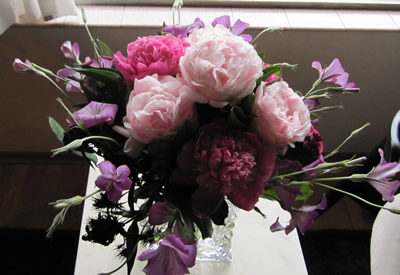
Esztergom und Visegrad
Hungary -
Trip on the Danube
Oettingen Heidenheim Donaufahrt Wien Esztergom Budapest Bratislava Melk
![]()
Esztergom-Hungary |
|
After a full day of sightseeing in Vienna we opted for an early night to gather our strength for the next excursion. When we arrived in Esztergom the next morning, we discovered that we had left the beautiful sunshine in Austria. Clutching raincoats and umbrellas we boarded the bus for an all day trip. We would not rejoin the ship until the afternoon in Budapest. Our first stop was the Cathedral of Esztergom.
Esztergom's cathedral is one of the largest church buildings in the world, it holds about 8,000 worshippers! It is based on the church built by Saint Stephan in 1090. During the several hundred years of Ottoman occupation the original church was largely destroyed, except for the crypt. The current cathedral was built in the late 18th century. This beautiful building is referred to as the Hungary's "Mother" church and is the seat of Hungary's cardinals, who are also buried and commemorated in the impressive crypt. A major memorial altar is devoted to Cardinal Minddszenty, one of the major personalities of the resistance against the Soviet occupation
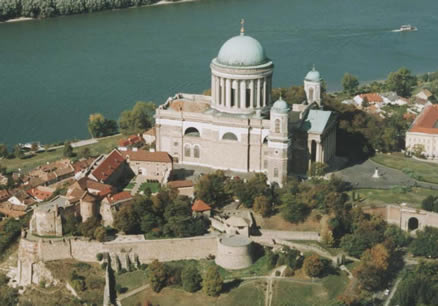 Day and
Day and
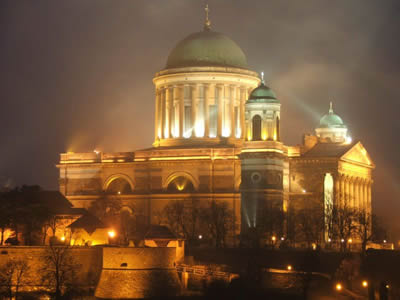 Night
Night
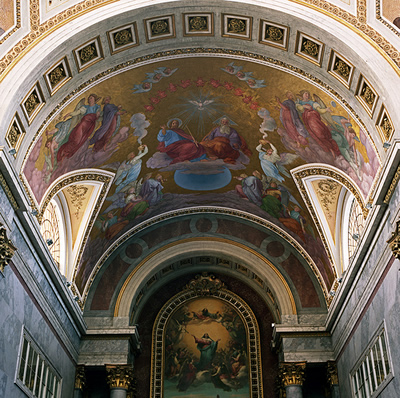
The beautiful frescos of the cathedral
For aficionados of the "Nibelungenlied" or Wagner's "Ring of the Nibelung" which was rather freely adapted from the poem, Esztergom is also significant as the final station of the drama: King Etzel (Attila the Hun) lived here. Kriemhilde, Siegfried's widow had married him after Siegfried had been slain. To revenge his death, she lured Gunther, Hagen and the remaining hero's of the saga to Esztergom and had them slaughtered in the dungeon of the royal palace. We were spared this gruesome fate, despite the rain we enjoyed our stay in Esztergom, however, we had to get back on the bus to drive to our next station - the ancient town of Visegrad
Viesegrad - Ungarn
Visegrad was first occupied by Celts, followed by Germanic tribes, Romans, Hungarians, Ottomans, etc. The town's heyday was in the 13th century, when its royal palace took on interantional importance as a result of several meetings of Kings of surrounding countries that resulted in significant treaties. A very large castle dominated the hillside above Visegrad and controlled traffic on the river.
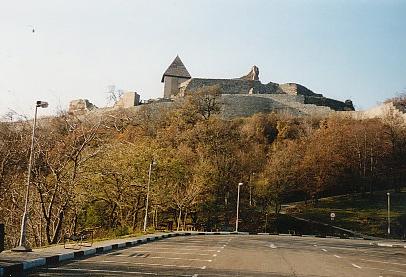
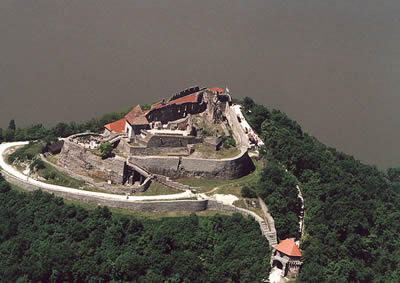
However, during the Ottoman occupation the town, including the palace were almost completely destroyed, leaving only a ruin of the impressive castle on the hill. Today Visegrad is a popular destination for the Danube cruise ships.
Like all other tourists we also wanted to explore the castle. Unfortunately it now was raining the proverbial cats and dogs and climbing the slippery path up to the catle was not much fun. Birgit was game to explore a bit of the castle ruins, Heidemarie discovered to her horror that her beloved, trusty raincoat had lost a lot of its waterproofing. She threw in the towel, descended and supported the Hungarian economy with the purchase of a rain poncho - After we briefly admired the view of the Danube "Knee" we fled to a restaurant where we had a very good if somewhat mysterious luncheon. Eventually we found out that the mystery meat was not - as some had speculated - horse but deer.
Since we cleaned our plates, the sun came out and we enjoyed a final view of the beautiful green Danube.
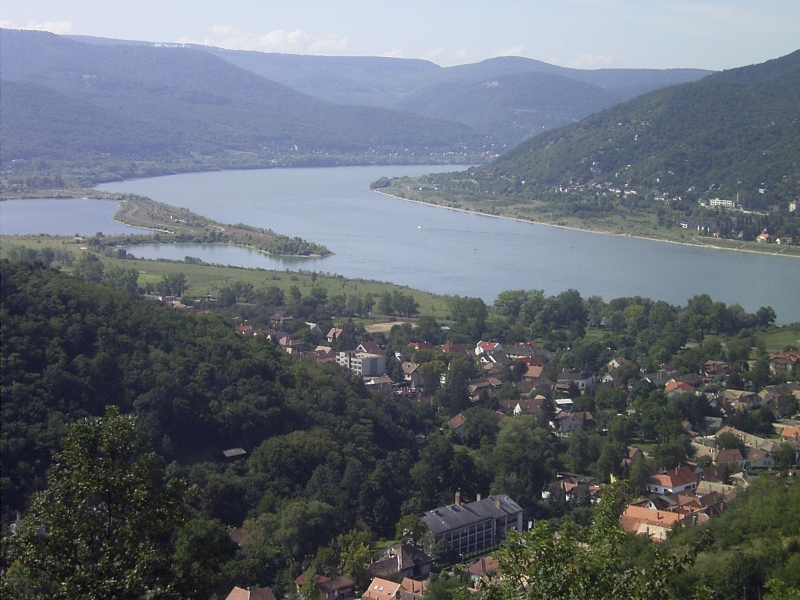
The Danube "knee" at Visegrad
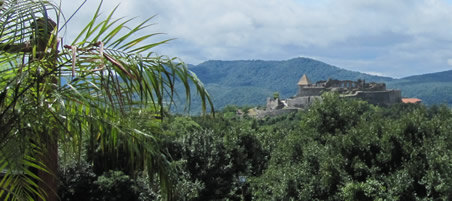
View of the ruin of castle Visegrad from our restaurant
We continued our trip along the Danube to Budapest and our ship. However, before we rejoined the Mia we were introduced to the city with a bus tour.
Oettingen Heidenheim Donaufahrt Vienna Esztergom Budapest Bratislava Melk Messel